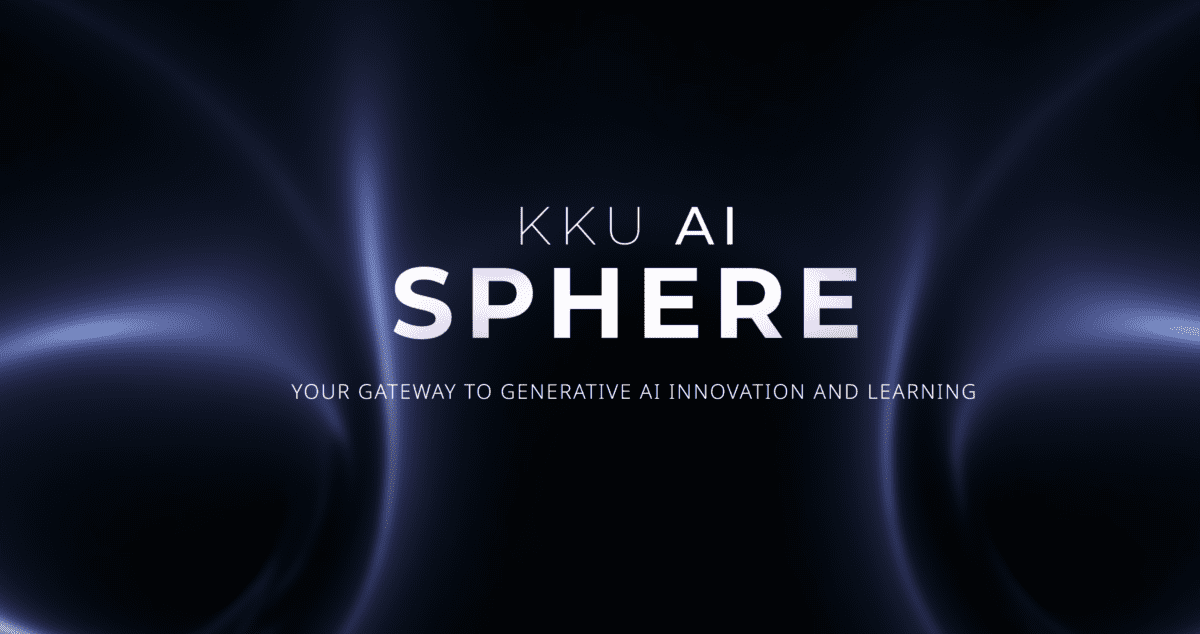In a groundbreaking move that puts Thailand on the global AI map, Khon Kaen University has unveiled KKU IntelliSphere – a revolutionary platform that brings together nine powerhouse AI tools under one roof. This digital Swiss Army knife is now freely available to the university’s entire community, marking a historic first in Thai education.

“We’re not just giving our people tools; we’re giving them superpowers,” says Dr. Kitt Tientanopajai, KKU’s Assistant to the President for Digital Affairs, with evident enthusiasm. “Think of it as having nine different AI experts at your fingertips, each with its own unique strengths.”
The platform’s lineup reads like an AI all-star team:
• OpenAI (GPT-4o / o1-mini) The same AI technology behind ChatGPT, suitable for tasks like curriculum design, creating quizzes, travel planning, report writing, summarizing content, and creative writing.
• Claude (3.5-sonnet) Known for its exceptional language capabilities, this ability excels in translation, multilingual communication, and Thai language Q&A. It is ideal for planning, problem-solving, and writing tasks, similar to GPT-4o.
• Gemini (2.0 / Thinking) Comparable to GPT-4o and Claude, Gemini supports text, image, audio, and video data. It has a more up-to-date knowledge base and excels in coding, making it a great assistant for software development and debugging.
• Alibaba Cloud (Qwen-Max) An open-source AI with the most extensive Chinese language knowledge base. It functions similarly to OpenAI and Claude, offering Q&A, summarization, coding, and problem-solving capabilities.
• AWS Nova (pro-v1) Developed by Amazon Web Services, this AI is excellent for answering questions, analyzing images, and summarizing documents and charts, performing on par with OpenAI, Claude, and Gemini.
• Meta AI (Llama 3.3) An open-source AI from Meta/Facebook, it is versatile for tasks like email writing, information retrieval, coding, and logical Q&A.
• Grok 2 (xAI) Notable for its speed and ability to provide detailed and lengthy answers compared to other AI abilities.
• Perplexity (sonar pro) A search engine enhanced with AI capabilities for summarizing, providing recommendations, and offering up-to-date information with references. It is particularly useful for researchers seeking current and accurate data.
• Mistral (mistral-large) An open-source AI with strengths in French language processing and compliance with strict European Union regulations. It offers capabilities similar to OpenAI, Claude, and Gemini.
What makes this initiative particularly remarkable is its democratic approach. “We’re not playing favorites here,” Dr. Kitt explains. “Whether you’re a freshman or a full professor, you get access to the same powerful AI tools. It’s like giving everyone a key to the future.”

Since its soft launch in January, the platform has already attracted over 1,000 faculty members, with numbers growing daily. The university’s pay-per-use model ensures sustainable access while maintaining quality service. “We’re not just keeping up with the AI revolution – we’re leading it,” Dr. Kitt adds.
Looking ahead, KKU plans to expand the platform’s capabilities to include image and video creation tools, potentially extending access to alumni. The message is clear: this isn’t just about making work easier; it’s about preparing the entire KKU community for a future where AI literacy is as essential as reading and writing.
For students and staff at KKU, the future isn’t something to wait for anymore – it’s already here, running on their devices, ready to transform ideas into reality. As Thailand’s first institution to offer such comprehensive AI access, KKU is not just teaching about the future; it’s actively building it.
This bold initiative represents more than just technological advancement; it’s a statement about democratizing access to cutting-edge AI tools and ensuring that every member of the KKU community has the resources they need to thrive in an AI-driven world.

